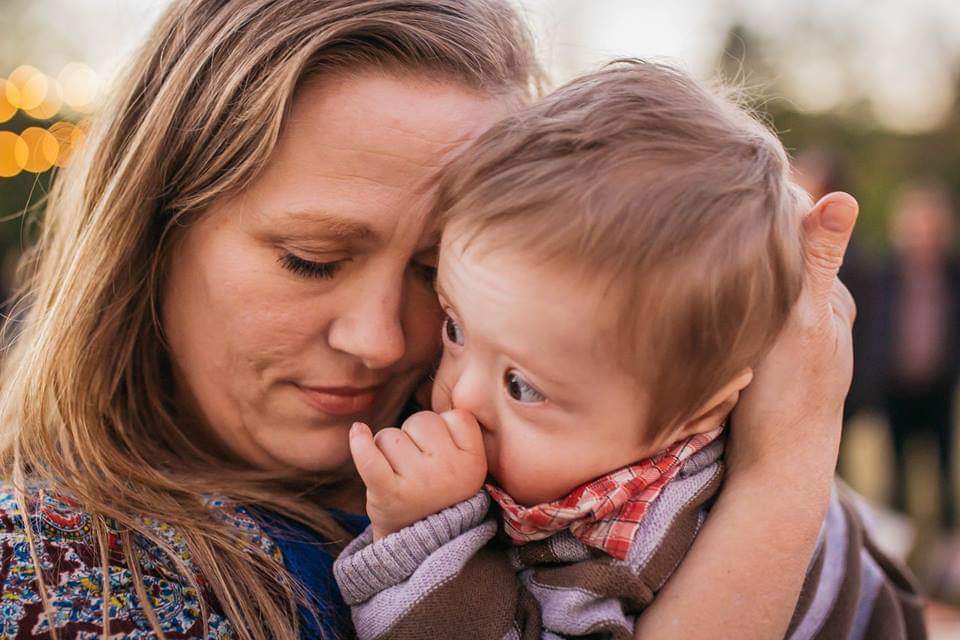Unborn baby who was doomed to die in utero is now “probably the happiest kid” in the home of the Schachles of Dickson, Tennessee.
Lenten Campaign 2025
This content is free of charge, as are all our articles.
Support us with a donation that is tax-deductible and enable us to continue to reach millions of readers.
Michael Schachle is a five-year-old child in Dickson, Tennessee, who has Down syndrome. According to his father, Daniel Schachle, 45, he “probably is the happiest kid in our house.” Schachle and his wife, Michelle, have 13 children.
“He’s always joyful,” Daniel said. “He’s a rambunctious little five-year-old who runs around all the time, plays, gets into things. He’s got a great sense of humor. He’s always kind of messing with people, playing jokes and stuff.”
And, Michael is a sign that Fr. Michael J. McGivney, the founder of the Knights of Columbus, is among the saints. On May 27, the Vatican announced that a thorough investigation of the healing of Michael Schachle from a fatal syndrome when he was still an unborn child was attributable to the intercession of Fr. McGivney. The healing had no medical or scientific explanation.
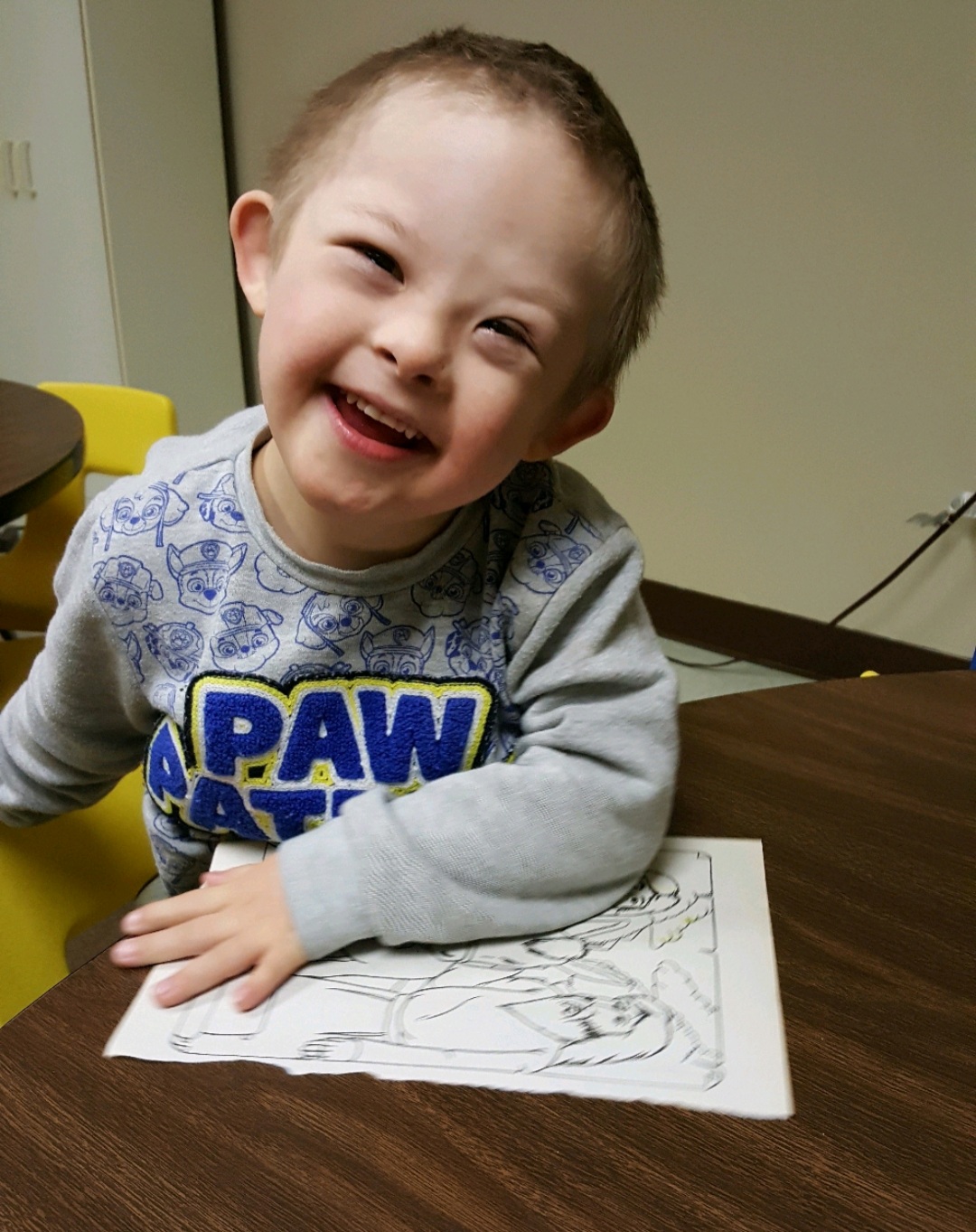
In other words, it was a miracle, opening the way for Fr. McGivney, who died in 1890, to be beatified.
The incredible story began on the last day of 2014, when Michelle Schachle, who was expecting, went for an ultrasound examination. The image showed worrying signs. Michelle’s doctor said the unborn child was likely to have either Trisomy-18 or Trisomy-21, commonly called Down syndrome.
One test led to another, and on February 25, 2015, the doctor told the couple that their baby in fact had fetal hydrops, a condition where he is overwhelmed by uncontrollable fluid buildup.
“The doctor gave us a 0% chance of survival,” Daniel recalled. “She said she’d been doing medicine for 30 years and never saw a child survive this.”
The physician told Michelle that she could let the pregnancy continue until the baby died on his own, and then the doctor would induce labor. Because of the possibility of Mirror Syndrome, in which a mother takes on a lot of the fluid that the baby is developing, putting the mom’s life at risk, the doctor said “she could terminate the pregnancy right now,” Daniel related.
Though the diagnosis terrified Michelle, whose first child years earlier had been a stillbirth, the Schachles knew that abortion was never going to be an option. Daniel said he felt anger during the discussion, as his fatherly instinct to protect his child kicked in.
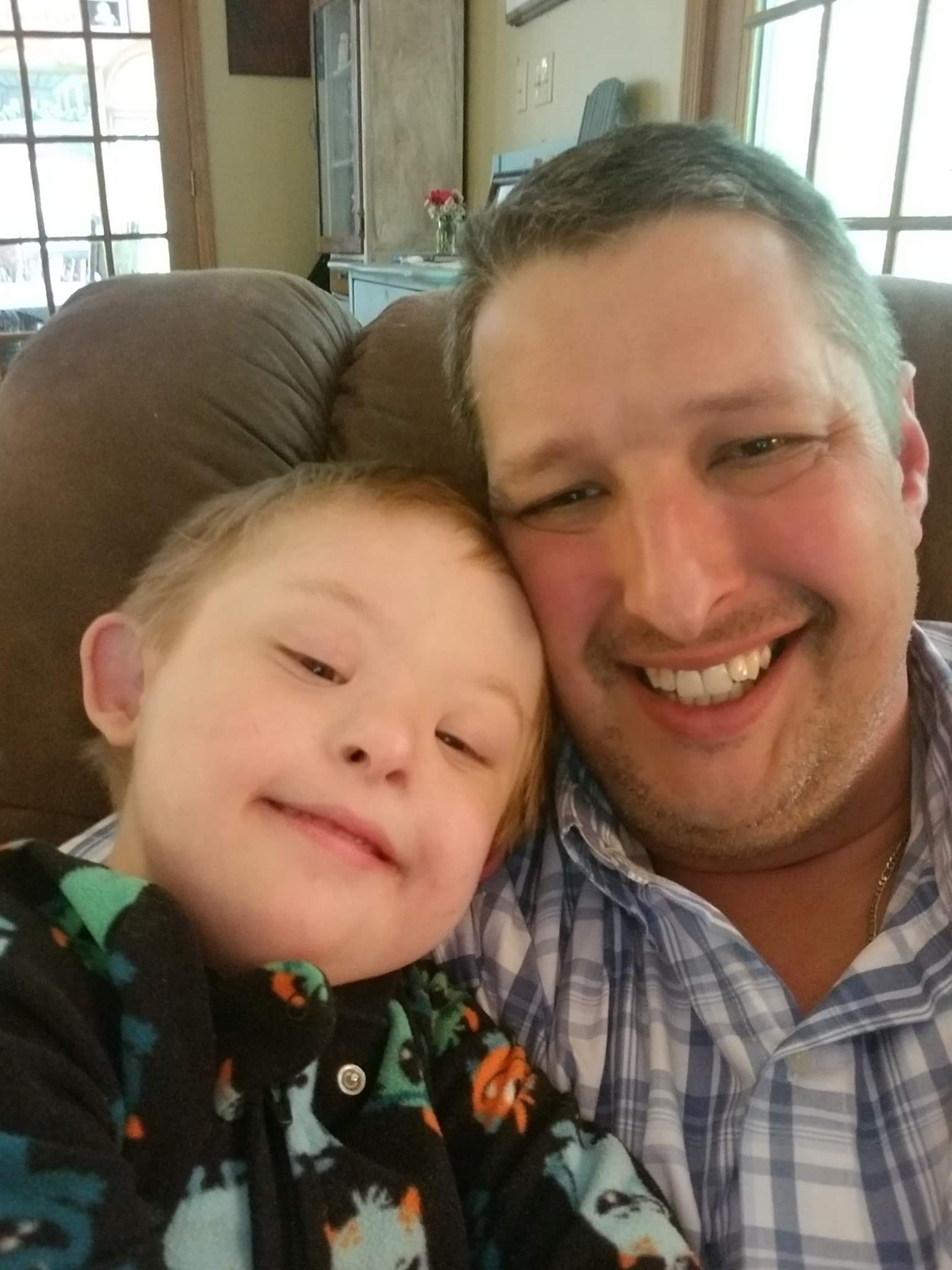
The devastated couple went home with many questions. They spoke with their parish priest to begin planning for a funeral. But Daniel decided to pray for a cure. As a longtime Knight of Columbus, his prayer instinctively was directed toward Fr. Michael J. McGivney, the founder of the Catholic fraternal society. His whole career as a Knights insurance agent had been built upon Fr. McGivney’s vision in founding the Knights. For Daniel, it was a “vocation to carry on the care of widows and orphans that Fr. McGivney envisioned.” The Schachles were a home-schooling family and developed a network with other home-schoolers. They named their home school the Fr. McGivney Academy. “We’ve often asked him to pray for us, and we’ve done the prayer for his canonization for years.”
But this father’s prayer now took on characteristics of Jesus’ Agony in the Garden, with Daniel mouthing words to the effect, “Lord, if it be your will, let this cup of suffering pass from us, but not my will but yours be done.” He specifically asked Fr. McGivney to intercede for his son’s healing, and promised to name him after the founder of the Knights if their petition was granted.
“After praying, I got up and told my wife what I had done,” he said. “She was a little bit frustrated at first because she really wanted to name the baby [Benedict] after her grandpa. But the next morning, she was all on board and began asking her friends to pray to Fr. McGivney, as did I, through email chain groups and stuff like that.”
Daniel said that the day he decided to ask for Fr. McGivney’s intercession, “we were going back and forth trying to process everything that was going on. We were looking at this pregnancy like God knows how long we would carry the child and end up with a stillbirth. Michelle was already making plans, and we were talking to our pastor about burial, and we had some friends who made some burial gowns for him. One day I went into the bedroom, and my wife just lay down on the floor crying. She was kind of inconsolable.”
“I remember kneeling down and telling God, ‘If you take my baby, I will still love you, but it will take me a while to forgive you,'” Michelle, 49, recalled. “‘I will do whatever you want me to do. It’s all in your hands.’
“I don’t remember if it was that day or the next day that I said, ‘Of course God can heal him, but what if he doesn’t, Dan?’ And he was like, ‘No he’s just going to be healed.'”
Events in the following weeks would affirm his instincts.
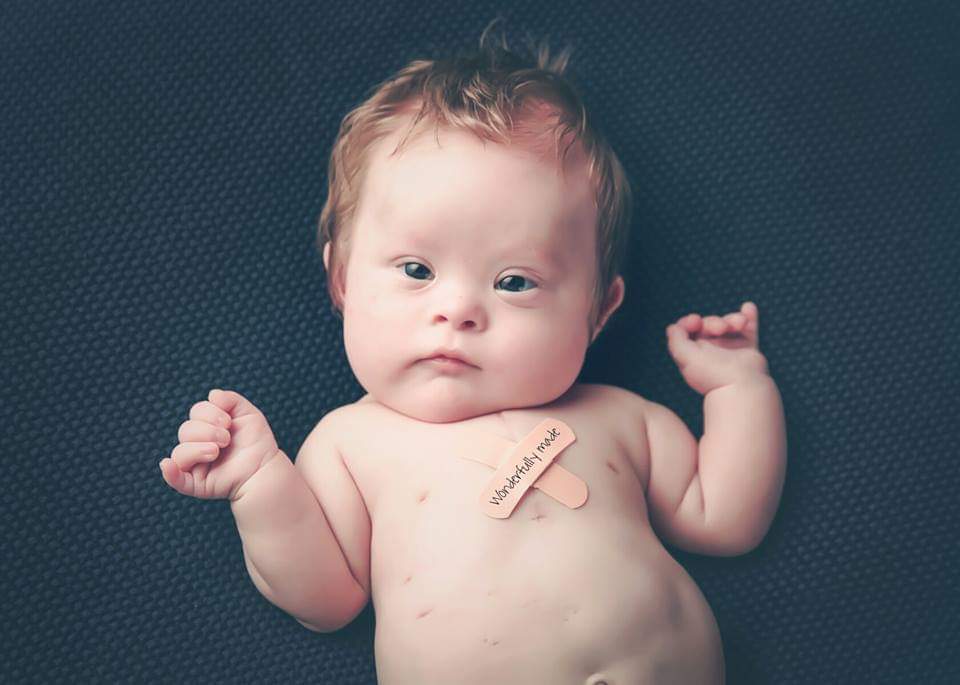
The Schachles were already planning to go to Fatima in March with a group of fellow Knights of Columbus insurance agents and their wives. The agents would be accompanied by Supreme Knight Carl A. Anderson and the Knights’ Supreme Chaplain, Baltimore Archbishop William E. Lori. The journey also included Madrid, and there was an option — which the Schachles added — of a side-trip to Rome.
Before leaving for Fatima, the couple went for another ultrasound, to make sure it was safe for Michelle to travel. It was, although the baby showed a lot of fluid in the lungs and head. They continued to pray for Fr. McGivney’s intercession, gathering the whole family each evening for the Rosary and the Prayer for Canonization of Fr. Michael J. McGivney.
In Rome, the couple met up with a friend, a priest from the States who was studying there. Learning of the couple’s situation, the priest offered to bring them and several other Knights and wives to St. Peter’s Basilica and offer Mass for them at one of the side chapels. The group was randomly assigned the Altar of Our Lady of Prompt Succor. Coincidentally, it’s an altar that had been refurbished about 20 years earlier, financed by the Knights of Columbus. In fact, Michelle already knew what it looked like, because she liked a picture of it on a Christmas card from Supreme Knight Anderson a few years earlier that she placed it in her prayer corner.
That was only the first of several coincidences. In Fatima, when the group of agents and their wives gathered for Mass, the Gospel reading for the day happened to be the passage where a royal official beseeches Jesus for a cure for his ill son.
Jesus said to him, “Unless you people see signs and wonders, you will not believe.”
The royal official said to him, “Sir, come down before my child dies.”
Jesus said to him, “You may go; your son will live.” The man believed what Jesus said to him and left.
“That was probably one of the moments that gave us the most hope, when we heard the Gospel that day,” Daniel said.
They reached Madrid in time for March 19, which was not only the feast of St. Joseph but also Daniel’s parents’ wedding anniversary. In Spain, it’s a holy day of obligation and Father’s Day as well. Michelle and Daniel spent much of their time admiring the art and architecture of churches throughout the city.
Strangely enough, every time they arrived at a church, it was the time of the Consecration. Fr. McGivney, whose middle name was Joseph, was first and foremost a priest, and the center of a priest’s life is the celebration of the Eucharist, in imitation of Jesus’s action at the Last Supper.
“Physically, I felt better” after the Mass in Fatima, Michelle said. “Looking back, now I realize I probably felt better at the Mass in Rome too. I never knew if that was just getting away from everything and resting or if it was the point where Michael was saved.”
The Schachles had another ultrasound when they got home in late March. The physician who gave them the bad news originally was not available that day, so another doctor came in to review the latest images.
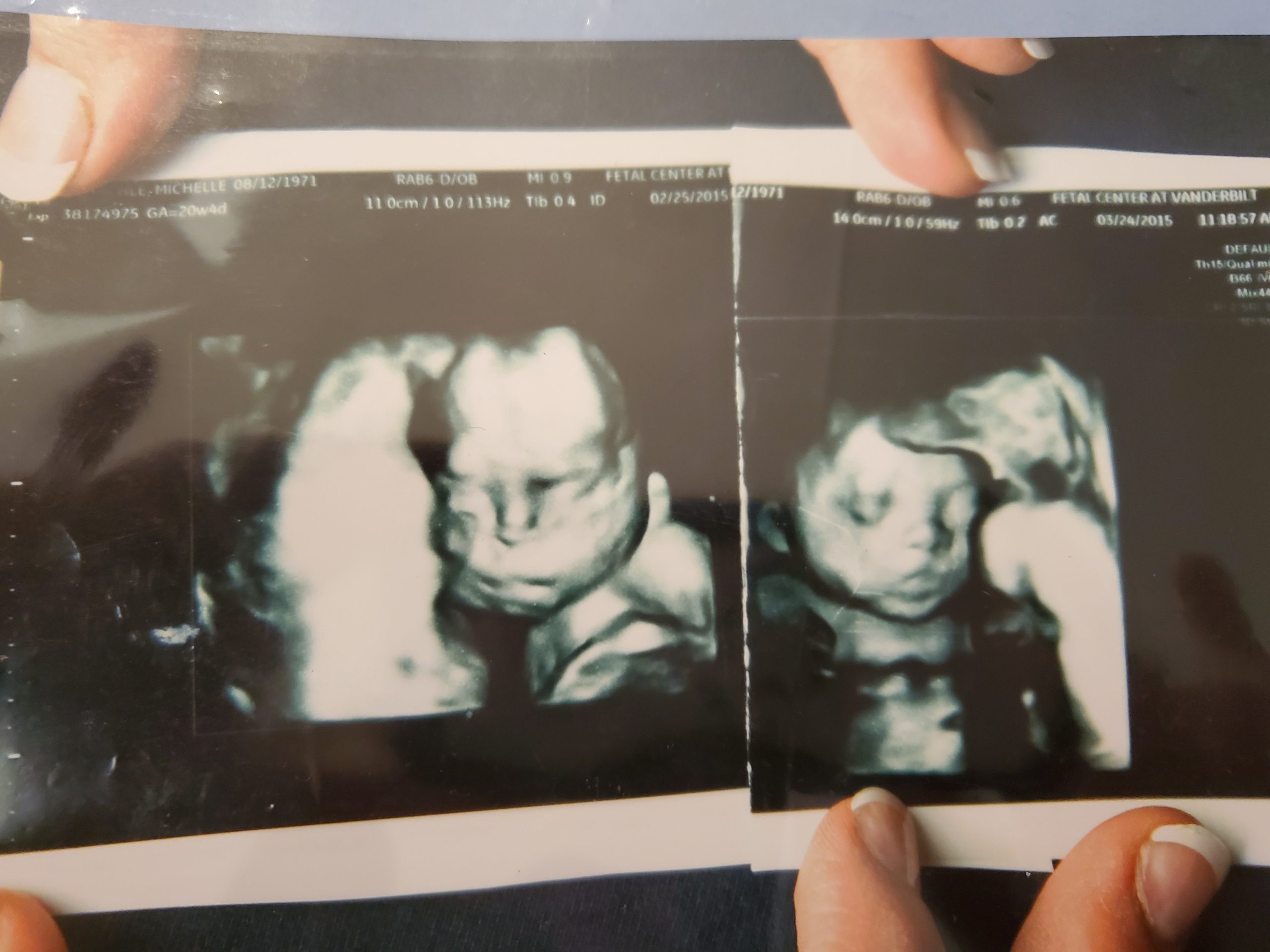
“This is the prettiest baby I’ve ever seen. Look at him,” she told Michelle.
Michelle looked at the screen and saw some light cloudiness. “That’s fluid, isn’t it,” she asked the doctor.
“A little,” she replied.
“On his earlier ultrasound, his chest cavity looked like a balloon, because of all the fluid in there,” Daniel said. “Like his lungs were all crumpled up, and you could see his organs just floating in this large sea of fluid. You could see his face — he looked like a 300- or 400-pound man, because his head was so swollen.
“But all of that was gone when we came back,” Daniel said.
Apparently, the new doctor was unaware of the fetal hydrops diagnosis, as she spoke of plans to meet another doctor, who would take care of the baby in the Neonatal Intensive Care Unit after the birth.
“I said, ‘Doctor, I thought there was no hope,” Michelle said. “She kind of looked at his name. And I distinctly remember her saying, ‘I thought you just came back from Fatima,’ because it’s like it hit her too, who we were. Then I remember she said, ‘With God, there’s always hope.'”
She asked for the baby’s name, and Michelle started weeping. “I said, ‘Doctor, there’s been a lot of controversy over that, but it looks like his name is Michael McGivney.’ So that’s the first time I called him Michael, and I never called him Ben again.”
Michael McGivney Schachle was born May 15, 2015. Some time later, Daniel was leaving his office for a meeting, and he glanced at a reproduction of the charter of the Knights of Columbus’ very first council. At the bottom was the date, May 15, 1882, and the signature of “M.J. McGivney.”
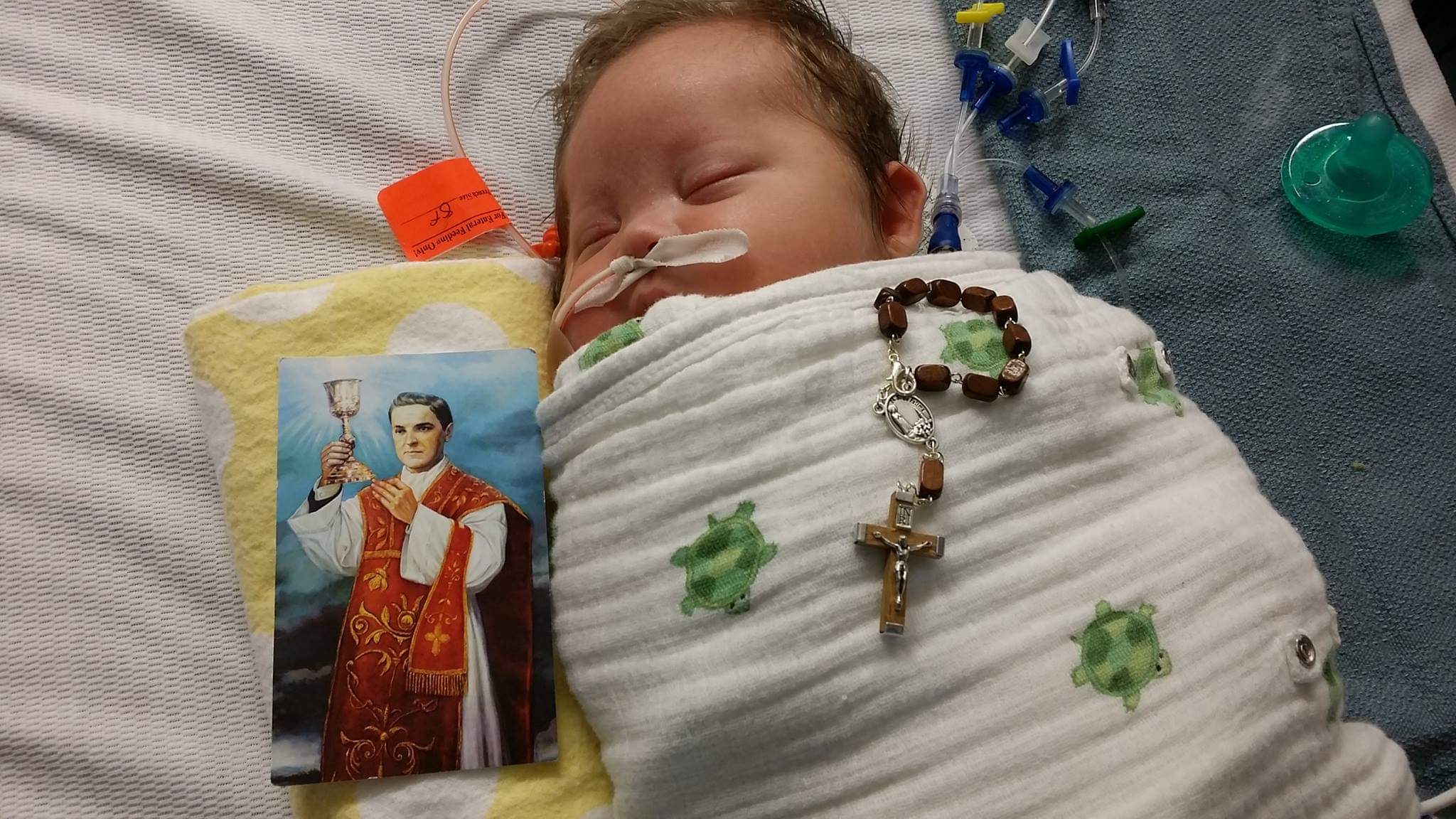
For the Schachles, being the parents of a “miracle child” is not the only recompense for their faithfulness. Daniel said they never asked that the diagnosis of Trisomy-21 go away. “We saw that as a great gift to our family and to our children, to be able to grow up around someone with Down syndrome,” he said.
And the effect of the whole experience on the family has been transformative. “I could see that the ones who are still at home where their faith has gotten so deep because this happened,” he said. “After the birth, my oldest three went off to college. Some of them kind of struggled with their faith. [But now] all the girls now are contemplating religious life.”
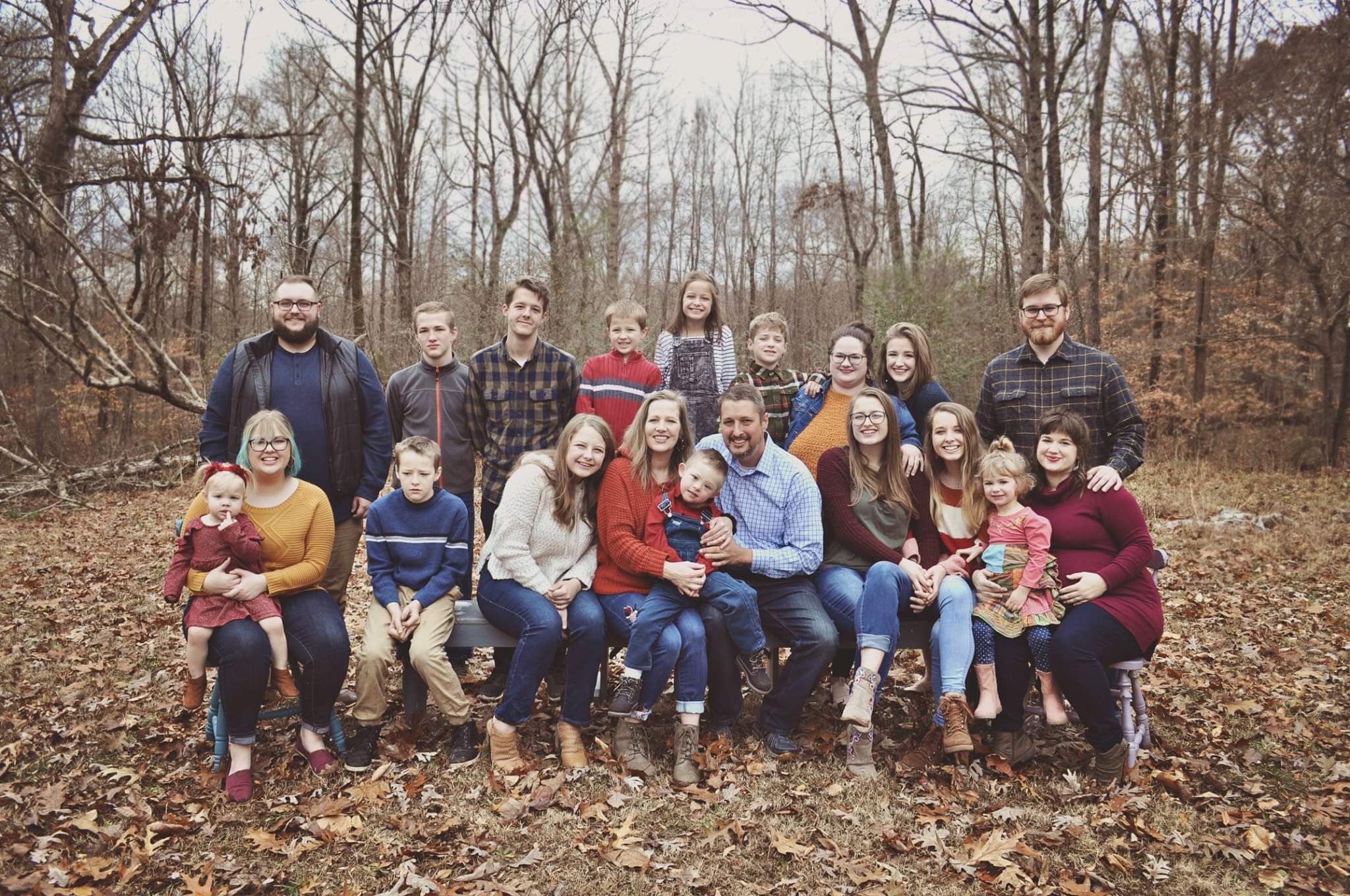
Before Michael, many of the Schachle children were characterized by a “worldly view, with God on the side,” Daniel explained. “Now it’s the opposite. Christ is the most important thing in the world.”
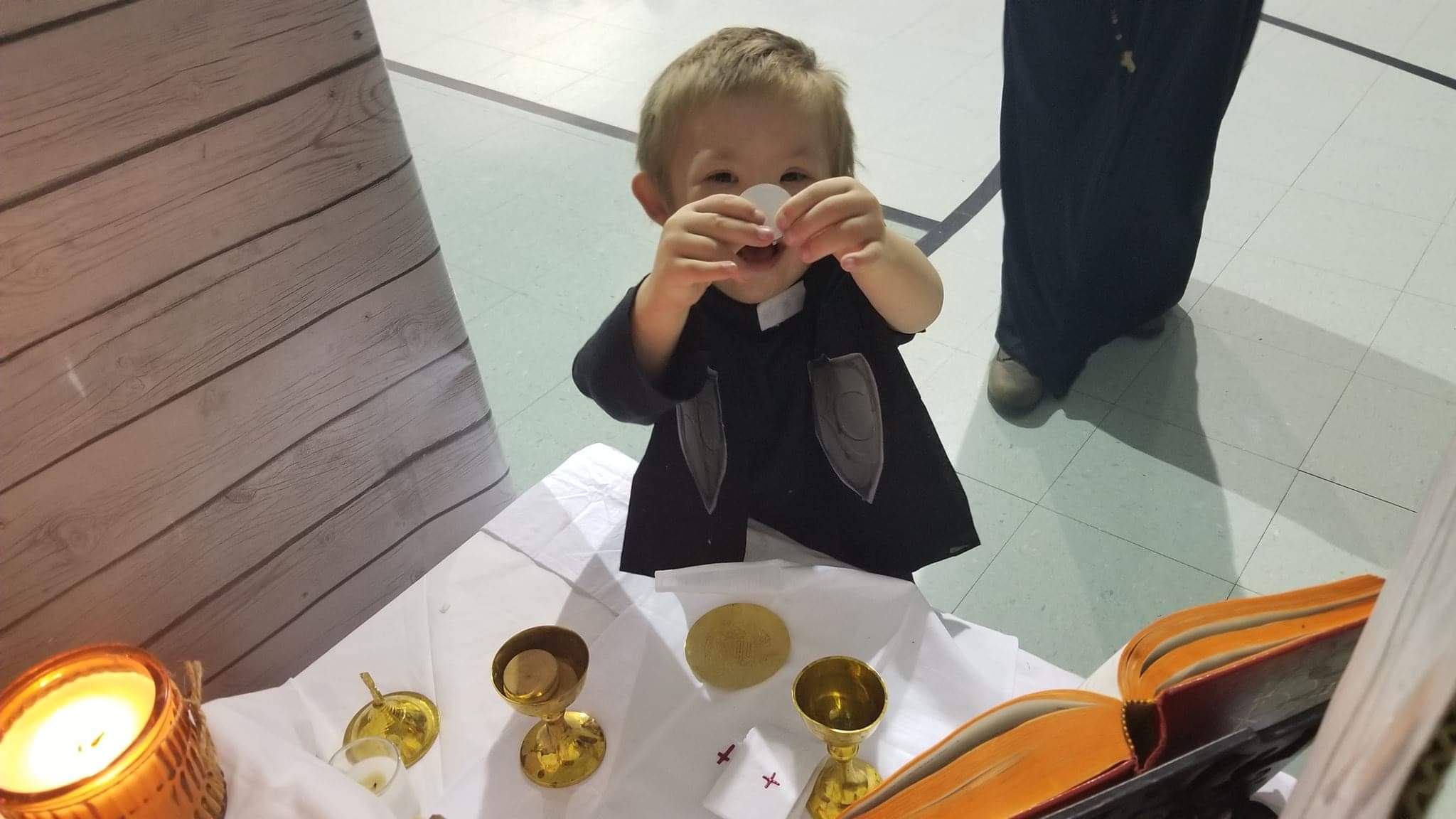
“It’s hard to comprehend” what happened, Michelle said. “You know God does miracles. He does them every day. But the comprehension of it will take me my lifetime. And because I lost a child [to stillbirth], every birthday, when people graduated, when there was a prom, I have for years longed to see her and hold her. So for me, personally, I look at Michael every day, and it is a gift that is given again. Every birthday, every smile.”
Said Michelle, whose name is the feminine form of Michael, having this miracle child is like “a kiss from Jesus to have such a gift every single day.”
